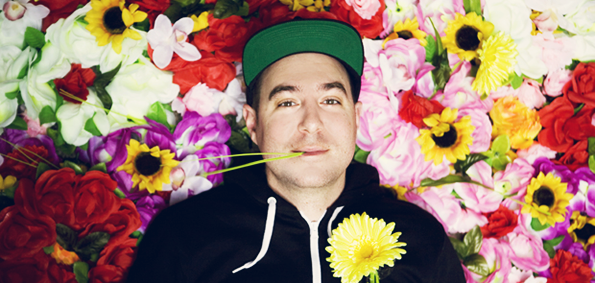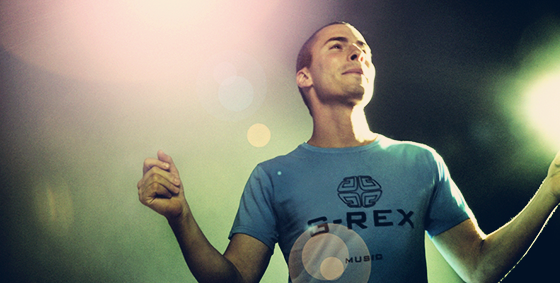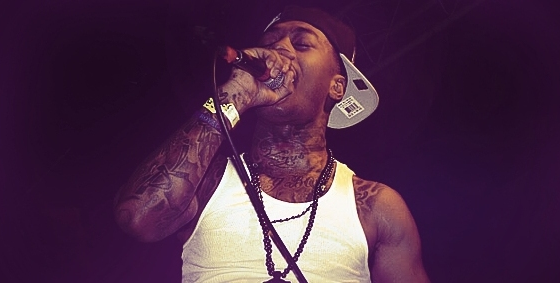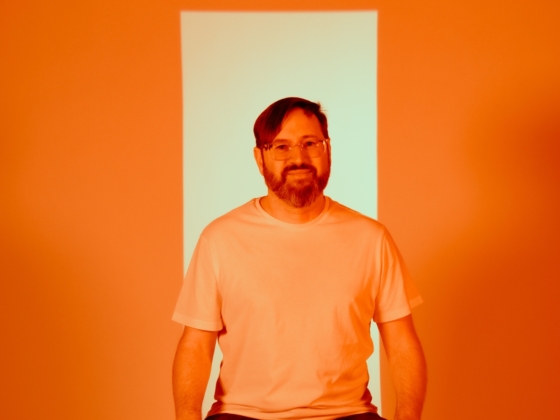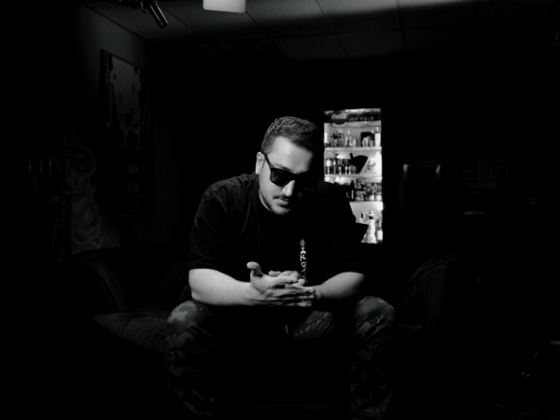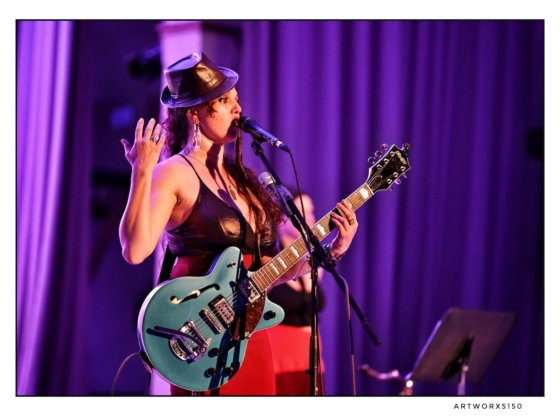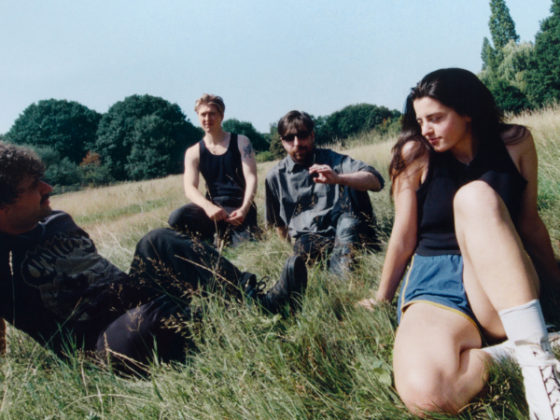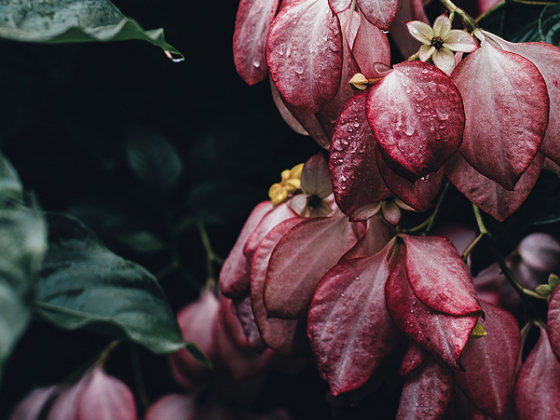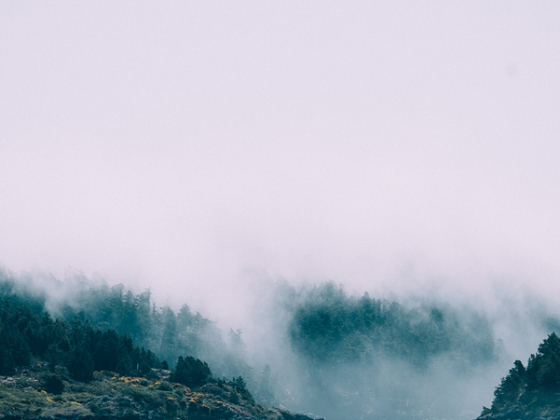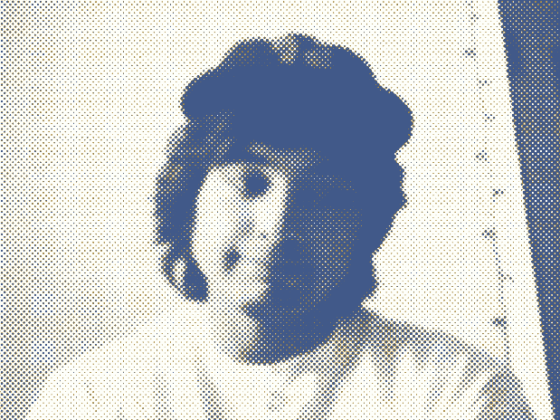Although this is coming a month or so late due to issues with the recording, I'm still really excited to have been able to interview San Francisco label Dirtybird Records's Justin Martin in Detroit when I was in town for Movement Festival. Although the Dirtybird crew didn't play the festival, they did organize a killer afterparty at the Fillmore, with a headlining back-to-back set from Justin Martin and label head Claude VonStroke and supporting back-to-back sets from Worthy vs. Leroy Peppers, J.Phlip vs. Kill Frenzy, and Ardalan vs. Justin Jay.
Justin Martin is known for his laid-back attitude and for not taking things too seriously despite his rampant success as a DJ/producer in the last six years, quoting Oscar Wilde in his profile on the Dirtybird website: "life is too important to be taken seriously." In spite of, or perhaps in part because of, his easygoing demeanor, Martin has earned accolades in the form of an appearance on BBC Radio 1's Essential Mix, a cover feature in DJ Magazine, and plenty of positive feedback on his productions and his energetic DJ performances.
Read on to learn more about what Justin Martin is working on now (including a forthcoming album alongside Eats Everything), his creative process and perfectionism, how he became interested in electronic music, and his need for physical studio time to get things done.
EARMILK: You were saying Movement is one of your favorite festivals, so you've attended before? What have been some highlights?
Justin Martin: This is probably my fifth year, and the first year I'm probably not actually going to be making it to the festival. Highlights? The highlight for me was playing two years ago, definitely. On a really, really, really hot day. Aside from that, I've seen Claude VonStroke play it three times now and he always kills it. I mean, he's like a hometown hero here, so the energy is amazing and it's just cool. Every year I've gotten to see him play he's dropped one of my new tracks I've been working on, so just getting to see the crowd reaction is always a highlight.
EM: And are you excited for the Dirtybird afterparty tonight at The Fillmore?
JM: I'm very excited for tonight, yeah. Every year we try and do a Dirtybird party here, and this is the first time we're doing tag team sets, which is cool. I think it's going to add a different element to it and it's always fun, but it's going to make it a different kind of fun. We didn't plan anything out, we're just going into it as an actual song-for-song battle. Just trying to make it as special for everyone else that attends as possible. I'm really excited.
EM: Have you and Claude VonStroke done a lot of back-to-back sets before?
JM: I've done a few this year, actually. I played in Miami at our Dirtybird barbecue, we had some sound issues in the beginning of the day so everyone had to push their sets together because we didn't get the music started until later. That was the first time that we played back-to-back kind of officially, other than afterparties and stuff like that. And then we ended up doing another tag team set later that night at a HARD Miami party and we just had a blast. So when we thought up the concept for this Dirtybird party, it came off of that. Plus we wanted to get everybody jammed into the lineup, and the only way we could fit everyone in the time that we had was to do tag team sets. I think it's going to be cool, I'm really interested to hear what everyone else does with it as well.
EM: Did you have a part in organizing the party, too?
JM: That's all Claude. Whenever it's a label party, which is pretty much any Dirtybird party with the exception of our quarterly party that we do in San Francisco and our outdoor barbecues that we do in San Francisco, he has a team that puts everything together and organizes it.
EM: And from playing all of these different parties in different places, do you have a sense of certain places where things are really blowing up right now?
JM: Yeah, the overall response to whenever we've done a Dirtybird party, like actually branded it as that, not where we're just playing some club, it always brings out a whole different dynamic, and it's really awesome. We have a really amazing fanbase all over the world. And it's cool, it's a really underground vibe and no matter where I am, I feel like I'm at home when it's a Dirtybird party. It's always really, really special.
But you know, there's definitely hot spots. San Francisco, our hometown, of course. London, and there's lots of places in the UK. The UK seems to be very Dirtybird-friendly. I don't know, I'm always surprised when we go play somewhere new, I'm always pleasantly surprised with the overall enthusiasm from fans. It's really cool.
EM: Some labels will focus on releases and that's it, but it sounds like Dirtybird has more of a community thing going on.
JM: Yeah, we're just really lucky. Lucky in the sense that we don't really sign anybody, but we've kind of got a little bit of a family. Not only are the people who are making the most interesting music to us talented, but they also happen to be really cool, fun people to hang out with, so it's really awesome to have this little creative collective of unique, fun people that are humble and down-to-earth. It makes every time that we get to do a Dirtybird party together special. I love all of the producers that I work with, and I feel lucky to be a part of that, you know?
EM: And do you end up collaborating a lot on music internally? Does that influence the productions that come out?
JM: There's a little bit of collaboration going on within the whole collective. For the most part, there's a few people that I'm more likely to collaborate with, for example, my brother (Christian Martin), because he's my brother. And then Ardalan is my roommate so I'm always kind of peeking into his room and checking out what he's working on, and thinking of stupid ideas late at night. And Eats Everything is another guy that we really just think on the same weird wavelength, so we work really well in the studio together. Neither of us are very serious people, so it's always really fun to work with him. We just goof off and get creative.
[soundcloud url="https://api.soundcloud.com/tracks/80903593" params="" width=" 100%" height="166" iframe="true" /]
I'm inspired by pretty much everybody that's putting stuff out on the label right now, so I'm down to work with anybody. I like working with other people, because I work a lot faster. Otherwise I'm kind of sitting in my room tweaking for hours and hours, just tweaking knobs like "aah, does it sound better on 11 or 9, what should I turn it up to?" but when I'm working with someone else, it's just kind of like, everything just rolls out. I have the voice of reason sitting on my shoulder.
EM: What does the process for producing your songs look like?
JM: It usually comes from an idea. I don't know, it's really hard to pinpoint how it all unfolds. I work a lot with samples, so I'll usually compile a bunch of sounds and stuff that I really like and just kind of see if I can make it all fit together, and just start jamming with different sounds. I always have my ears tuned to listening for samples everywhere, constantly. Whenever I hear a song, if there's a nice kick drum, I'll be like, "is that by itself somewhere in the song?" or if I hear a bass note that's by itself, or a nice chord, or something like that.
I just try to make every song different from the last. I try to get as creative as I can. It's weird, it kind of just unfolds. You start messing around and something clicks, but yeah, I definitely have ideas of songs that I want to do. I'll be like, all right, I want to do this type of track. It's usually inspired from other music that I hear.
EM: It seems like you have a pretty diverse set of influences given some of the mixes you've put out, like that jungle/drum and bass one.
JM: Yeah, that's what got me into it at the very beginning. From the age of fifteen, I was a huge drum and bass fan. I started collecting and DJing drum and bass records when I was in high school, so for me, I didn't switch over to house music until I moved to San Francisco in 1999. There wasn't really a good drum and bass scene in San Francisco and it was really hard to find the records I was looking for, so I just kind of started collecting house music and slowly got into it.
[soundcloud url="https://api.soundcloud.com/tracks/72653373" params="" width=" 100%" height="166" iframe="true" /]
When we first started producing the Dirtybird stuff, we wanted to make something that had influences from everything. And there was luckily a giant hole that was just waiting to be filled by our ideas. We wanted to make music that kind of crossed genres, with a little bit of a drum and bass influence, techno, house, everything kind of combined into one, where you can't really pinpoint what the genre is.
EM: Yeah, I feel like you guys were kind of ahead of the curve with that sort of thing. A lot of people seem to be trying for that now.
JM: Everything just kind of fell into place really nicely for us. We lucked out. We happened to all meet each other around the same time and all had a common goal, and it's been an awesome ride.
EM: What's coming up for Dirtybird now?
JM: Claude has an album he's working on. I haven't talked to him in a little bit, we actually probably haven't even spoken in like two weeks because he's been locked away working on it. I'm working on an album with Eats Everything that's hopefully going to come out in the spring. It's really hard with our schedules to get in the studio together but we're taking all of November off just to work and see what we come up with. Hopefully it flows. We're going to call the project something — it's not just going to be "Justin Martin and Eats Everything," we haven't come up with a name yet but we'd like to put together a live show for next year.
[soundcloud url="https://api.soundcloud.com/tracks/95402316" params="" width=" 100%" height="166" iframe="true" /]
EM: I know a lot of people right now have moved their collaborations to the Internet. Is that physical studio time still important to you?
JM: Yeah, I kind of need to be there. I'm really, really, really kind of anal. I'm a perfectionist when it comes down to it. And I hate the thought of something getting changed without me knowing it. It's almost OCD, or something like that. To a fault. So I like to be there, and I like to be the one that's putting the final tweaks and touches on the track.
As far as working over the Internet, I think if it's the barebones and it's an idea of the track, something I can embellish on, but I have to be there in the studio. It's not something I can just pass back and forth. For example, when me and Dan (Eats Everything) did our EP on Hypercolour, we started it over a year ago, and we kind of finished it, but it wasn't ready to go, but he was like, "All right, we've really got to finish this. We've been sitting on these tracks, they sound great out, they sound great in the club," and I'm just like, "No, it's not quite right."
[soundcloud url="https://api.soundcloud.com/tracks/78238888" params="" width=" 100%" height="166" iframe="true" /]

